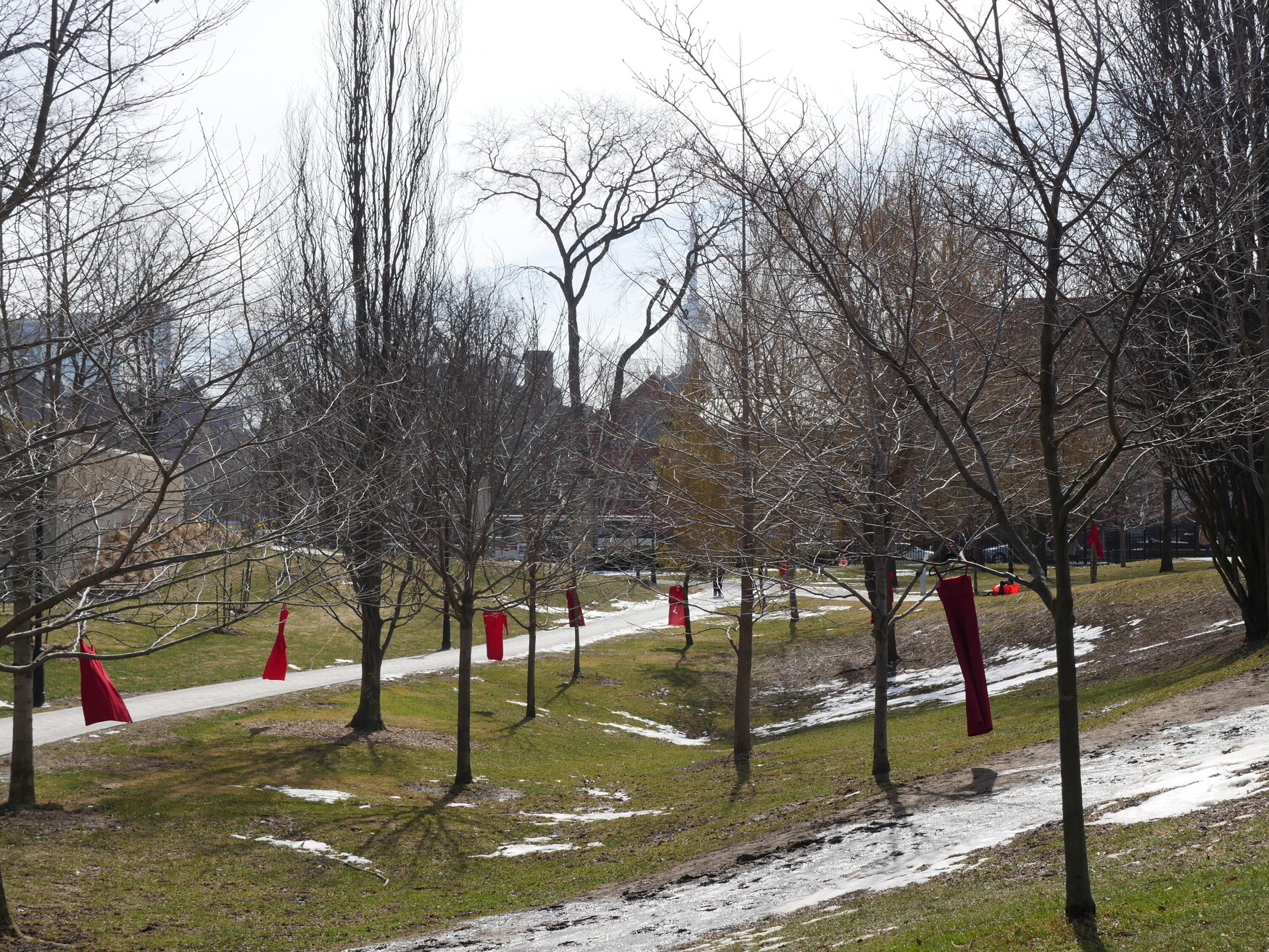Mobile Menu
- Education
- Research
-
Students
- High School Outreach
- Undergraduate & Beyond: Community of Support
- Current Students
- Faculty & Staff
- Alumni
- News & Events
- Giving
- About

May 5 is National Day of Awareness for Missing and Murdered Indigenous Women and Girls and Two-Spirit (MMIWG2S) people in Canada, also known as Red Dress Day. This is a day for each of us to examine and recognize the significance of the atrocities that continue to take place in Indigenous communities — particularly against Indigenous women, girls and gender diverse peoples.
Today, we would like to lift up two of the many Indigenous women, advocates and leaders, whose action and personal stories have helped bring awareness to Red Dress Day.
Jaime Black first created the REDress Project in 2010. It has become an ongoing art installation that highlights the critical national issue of MMIWG2S. The installation draws attention to the gendered, racialized and invisibilized nature of violent crimes against Indigenous women. The far-reaching and lasting impact of the REDress Project speaks to the resilience and truth of Jamie’s vision.
In 2012, Sheila North coined the social media hashtag #MMIW (later expanded with community to #MMIWG2S). As a survivor, she demonstrates bravery and vulnerability in using her platform to share stories of other survivors. She also shares her experiences in grassroots and institutional conversations. In her advocacy, Sheila highlights that MMIWG2S is not just an Indigenous issue, and not just a women’s issue — it is a complex, systemic issue that requires collective action and accountability.
Indigenous women, girls and Two-Spirit peoples are significantly overrepresented in statistics on violent crime including homicide, domestic and family violence, physical assault and robbery, and sexual violence. Considering these as intergenerational traumatic impacts of settler colonialism and genocide, healthcare workers should consider MMIWG2S as an urgent public health issue — truly, an epidemic that has gone unaddressed for too long.
We see vibrant red dresses hanging in public spaces that poignantly symbolise those who are no longer with us. We read of heartbreaking stories in public media on #MMIWG2S. However, beyond May 5, how will you support those who have been directly impacted by violence and honour those who have been lost? As part of our collective responsibility for humanity, let us unlearn and examine our attitudes around violence against Indigenous women and gender diverse people, and relearn a new way to move forward.
Support & Education
Lindsey Fechtig, MEd
Manager, Office of Indigenous Health
Lisa Richardson, MD, MA, FRCPC
Associate Dean, Inclusion and Diversity
Associate Professor, Department of Medicine